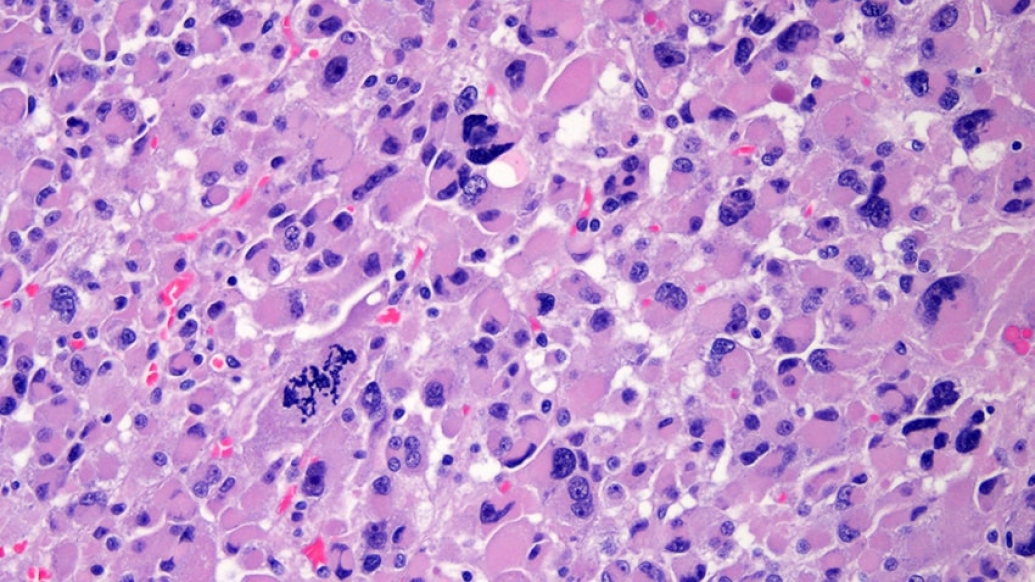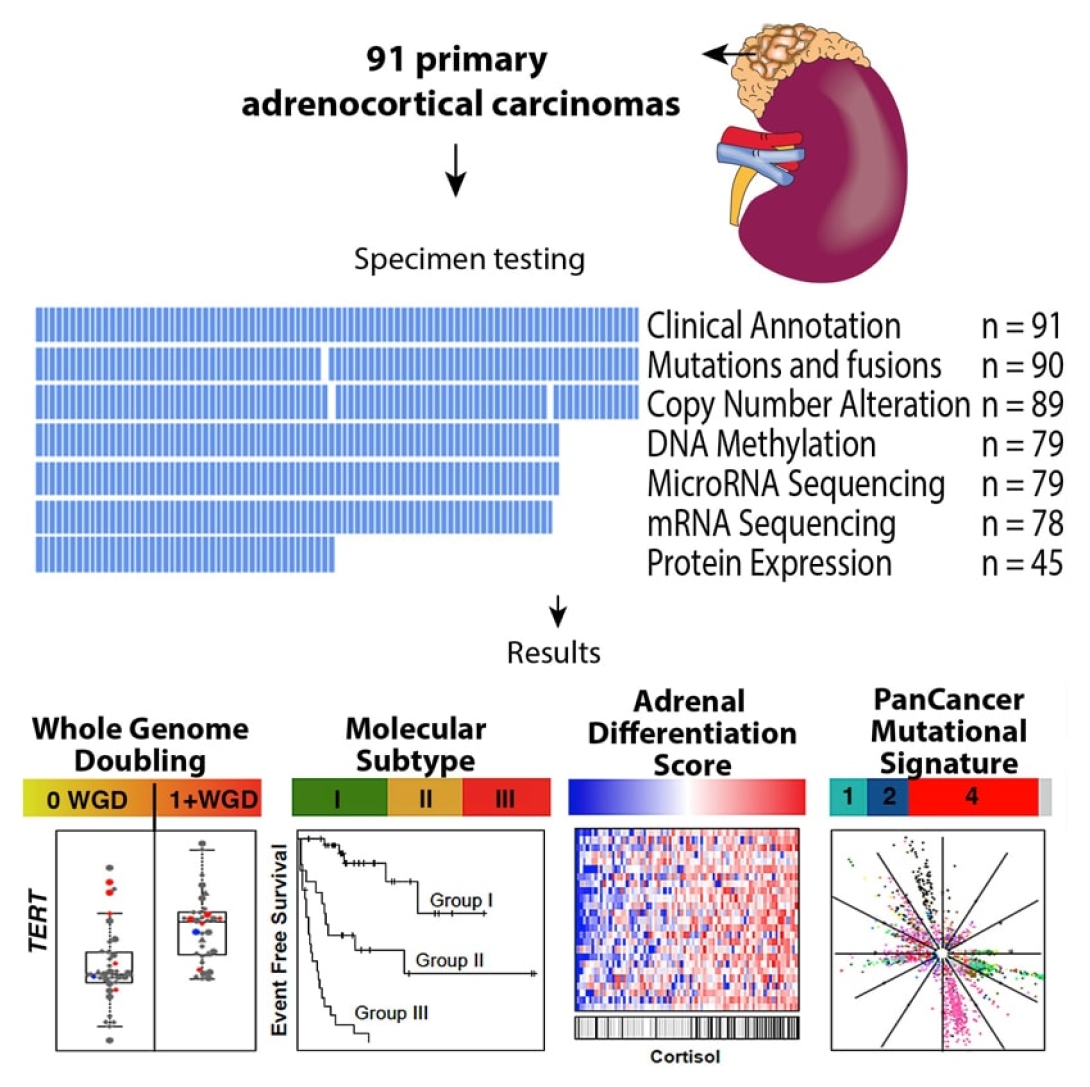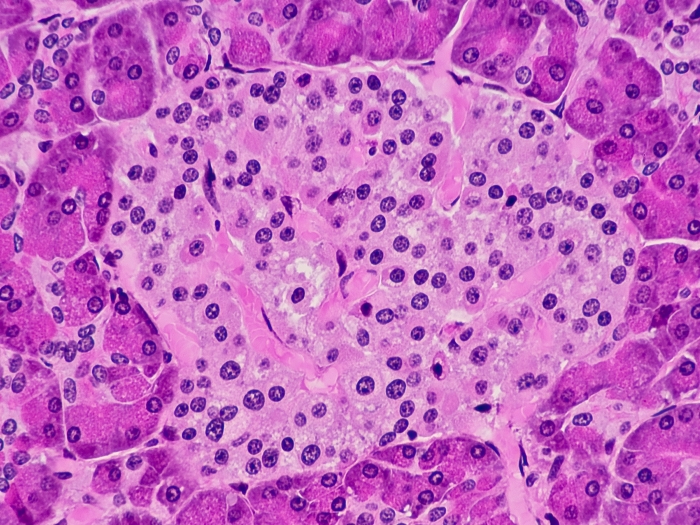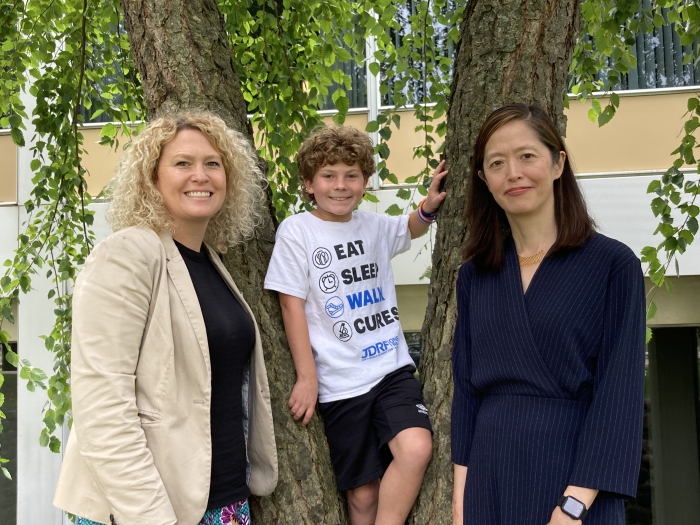Adrenal cancer researchers spanning 39 institutions identified new genetic drivers of the disease. The results make way for future treatment advances.
12:15 PM
Author |

Researchers from across the globe have joined together to improve understanding about one of the most rare — and lethal — types of cancer.
Teams from 39 institutions in Europe, North America, South America and Australia collected and analyzed 91 samples of adrenocortical carcinoma. They performed a comprehensive genomic analysis as part of The Cancer Genome Atlas Research Network.
The results, published in Cancer Cell, newly identify several genes that drive adrenal cancer. In fact, the analysis uncovered double the number of genetic drivers already known to fuel adrenal cancer.
"This data has implications for diagnosing and predicting outcomes of adrenal cancer. It also allows us to probe deep into the biology of the disease to understand how these new gene mutations contribute to adrenal cancer progression and formation," says senior author Gary D. Hammer, M.D., Ph.D., the Millie Schembechler Professor of Adrenal Cancer at the University of Michigan Rogel Cancer Center.
Collaboration was key to this project. Adrenal cancer affects only two in every million people worldwide. Because it's so rare, one institution won't see enough patients to generate meaningful research.
"We've been working on an adrenal cancer network around the world since 2003," Hammer says.
That's why when TCGA first announced its rare cancer projects, Thomas Giordano, M.D., Ph.D., instantly pushed adrenal cancer. Giordano, the Henry Clay Bryant Professor of Pathology at U-M, was co-chairing TCGA's thyroid cancer analysis. He knew that with some of the common cancers represented in the project, the teams were struggling to find enough samples. And he also knew that the adrenal cancer research community could pull it off.
"It speaks to the power of collaboration with rare cancers. It's very difficult to do advanced genomics without collaboration, especially in a disease in which the number of patients is so small," says Giordano, senior author on the paper.
The conclusions drawn from this paper will help fuel discovery in adrenal cancer as well as in other types of cancer.Thomas Giordano, M.D., Ph.D.
A new understanding
The study revealed several interesting findings. One of the most exciting mutations is ZNRF3, which the researchers found to be lost in up to 20 percent of the adrenal cancers studied. The study also confirmed that mutations involved in benign adrenal disease play a role in adrenal cancer.
Another key finding was that many adrenal tumors undergo whole genome doubling — a phenomenon in which each chromosome in the gene replicates and creates a second copy. This reflects instability of the cancer genome, which is particularly prominent in adrenal cancer.
"We suspect that understanding the biology of how that happens and the consequences of that event will ultimately help us define and discover new therapies," Hammer says.
Researchers identified three distinct subtypes of adrenal cancer based on their molecular alterations. The subtypes were linked to different outcomes, suggesting a way to use molecular biomarkers to identify those patients likely to have more aggressive disease, and to more precisely match therapy with disease biology.
"Our results represent the most complete characterization of adrenal cancer tissues and may indicate a key to successful targeted therapy for this disease," says senior author Roeland Verhaak, Ph.D., associate professor of bioinformatics and computational biology at MD Anderson Cancer Center.

Future treatment advances
The Cancer Genome Atlas is a federally funded project to understand the molecular characterization of various cancer types. The project has published numerous landmark papers in breast, colon, ovarian, lung and thyroid cancers.
The complete data set from each project is published so that any researcher can identify potential new ideas to better understand and better treat cancer.
This is especially crucial for adrenal cancer specialists. Adrenal cancer survival rates are dismal, in part because the disease is often diagnosed in late stages. No new treatment options have been developed since the 1970s.
"We're very excited about the potential to begin to translate these findings. The conclusions drawn from this paper will help fuel discovery in adrenal cancer as well as in other types of cancer. Observations from rare cancers often inform us about more common cancers," Giordano says.
Funding for this work was from the National Institutes of Health.

Explore a variety of healthcare news & stories by visiting the Health Lab home page for more articles.

Department of Communication at Michigan Medicine
Want top health & research news weekly? Sign up for Health Lab’s newsletters today!





